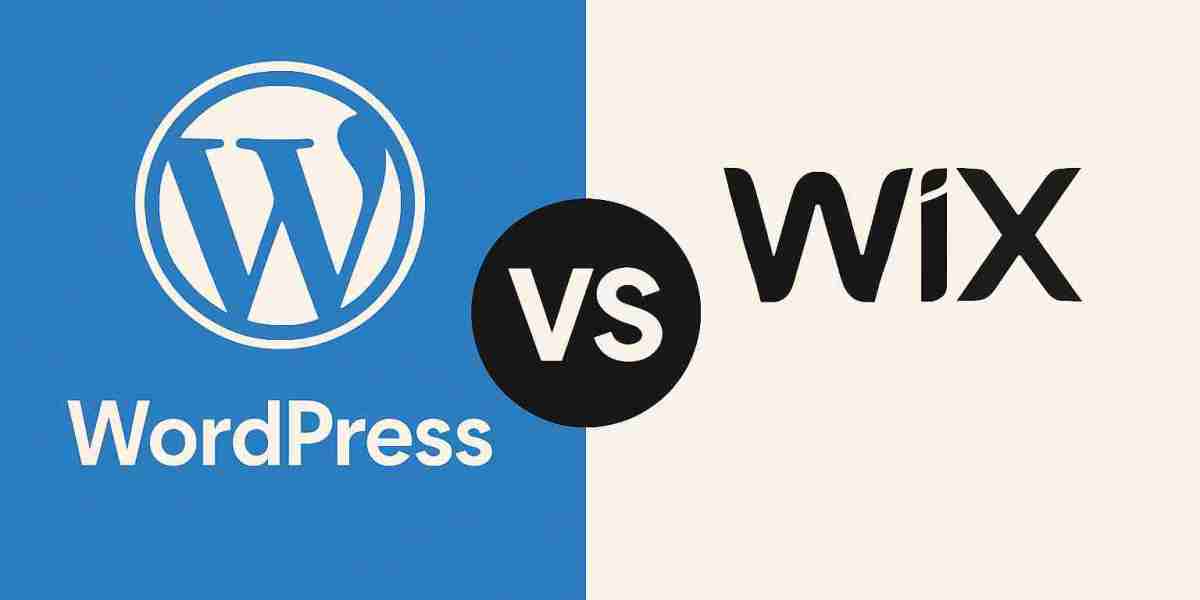In the digital world, building a strong online presence begins with choosing the right website builder. If you're stuck deciding between WordPress and Wix, you're not alone. These two platforms are among the most popular tools for website creation. But while both offer great solutions, they serve different needs. In this article, we’ll break down the top differences between WordPress and Wix to help you make a smart, informed choice for your business or personal brand.
Understanding the Basics: WordPress vs Wix
Let’s start by understanding what each platform offers.
WordPress is an open-source content management system (CMS). It powers over 40% of all websites on the internet. WordPress is flexible, highly customizable, and ideal for blogs, business websites, portfolios, and even large e-commerce stores.
Wix, on the other hand, is a user-friendly website builder with a drag-and-drop interface. It is designed for beginners who want to get their site live quickly without diving into technical stuff.
The difference in how both platforms work affects everything from design to performance and pricing. Now, let’s explore the key differences between WordPress and Wix that matter the most.
1. Ease of Use
This is where Wix shines. It’s beginner-friendly, offering an intuitive drag-and-drop editor. You don’t need any coding skills to get started. Wix even offers Wix ADI (Artificial Design Intelligence), which can build a site for you based on a few questions.
WordPress, although more flexible, has a steeper learning curve. Users need to understand themes, plugins, and some backend configuration. If you're not tech-savvy, WordPress might feel overwhelming at first.
✅ Winner for ease of use: Wix
2. Design and Flexibility
With WordPress, you can choose from thousands of free and premium themes. You can also modify the code, making it perfect for developers or those who want a fully customized site.
Wix offers over 800 templates, but once you select a template, you cannot change it without rebuilding the site. While its templates are beautifully designed, they’re less flexible compared to WordPress themes.
✅ Winner for design flexibility: WordPress
3. Features and Functionality
WordPress offers access to over 60,000 plugins that allow you to add just about any feature imaginable—SEO tools, social media integrations, advanced forms, and more. You have complete control over the website’s functionality.
Wix has an App Market with various add-ons, but it’s not as extensive as WordPress. Plus, many features come with limitations unless you upgrade to a higher plan.
✅ Winner for features: WordPress
4. SEO Capabilities
Both WordPress and Wix support basic SEO features like custom URLs, meta descriptions, and image alt texts. However, WordPress offers more advanced SEO plugins like Yoast SEO or Rank Math, giving you deeper control.
Wix has improved its SEO tools in recent years, offering keyword optimization, indexing control, and schema markup. But it still doesn’t beat the flexibility WordPress provides when it comes to optimizing for Google rankings.
✅ Winner for SEO: WordPress
5. Pricing and Ownership
Wix offers an all-in-one solution, including hosting and domain options, but it comes with tiered pricing. The free plan includes Wix branding and ads, while higher plans remove them and offer more features.
WordPress itself is free, but you’ll need to pay for hosting, a domain, and possibly premium themes or plugins. This gives you full control and ownership, whereas with Wix, you’re limited to their ecosystem.
✅ Winner for value and ownership: WordPress
6. Customer Support
Here’s where Wix takes the lead. It offers 24/7 customer support through phone, live chat, and email. There’s also a vast help center with articles and tutorials.
WordPress, being open-source, doesn’t offer centralized support. Instead, users rely on community forums, YouTube tutorials, or support from theme/plugin developers.
✅ Winner for support: Wix
7. E-Commerce Options
Both WordPress and Wix support e-commerce functionality. Wix offers a built-in e-commerce plan with tools like product galleries, shipping management, and payment integrations.
WordPress, combined with the WooCommerce plugin, turns your site into a powerful e-commerce store. WooCommerce is highly customizable and suitable for scaling a large business, but it does require more setup.
✅ Winner for scalable e-commerce: WordPress
8. Updates and Maintenance
With Wix, all updates are handled automatically. You don’t have to worry about maintenance—it’s all taken care of behind the scenes.
WordPress, on the other hand, requires you to manage updates for themes, plugins, and the core CMS. It offers greater freedom, but also demands more attention.
✅ Winner for hassle-free maintenance: Wix
Final Thoughts: Which Platform is Right for You?
Choosing between WordPress and Wix depends on your specific needs.
Go with Wix if:
You’re a beginner who wants an easy, code-free setup.
You need a website up and running quickly.
You prefer all-in-one solutions with built-in support.
Choose WordPress if:
You need full control over your site’s design and functionality.
You plan to scale your business or blog long-term.
You want advanced SEO tools and e-commerce flexibility.
Conclusion
Both WordPress and Wix have their strengths and serve different audiences. Wix is fantastic for beginners and those wanting an all-inclusive package. WordPress, however, is a powerhouse for those seeking flexibility, scalability, and ultimate control.
Before you decide, ask yourself: What’s the goal of your website? Once you’re clear on your priorities—whether it’s ease of use, custom features, SEO, or scalability—you’ll know which platform suits you best.
Still unsure? Try building a simple version of your website on both platforms and experience the difference firsthand. No matter which path you choose, building your online presence is a step in the right direction.








